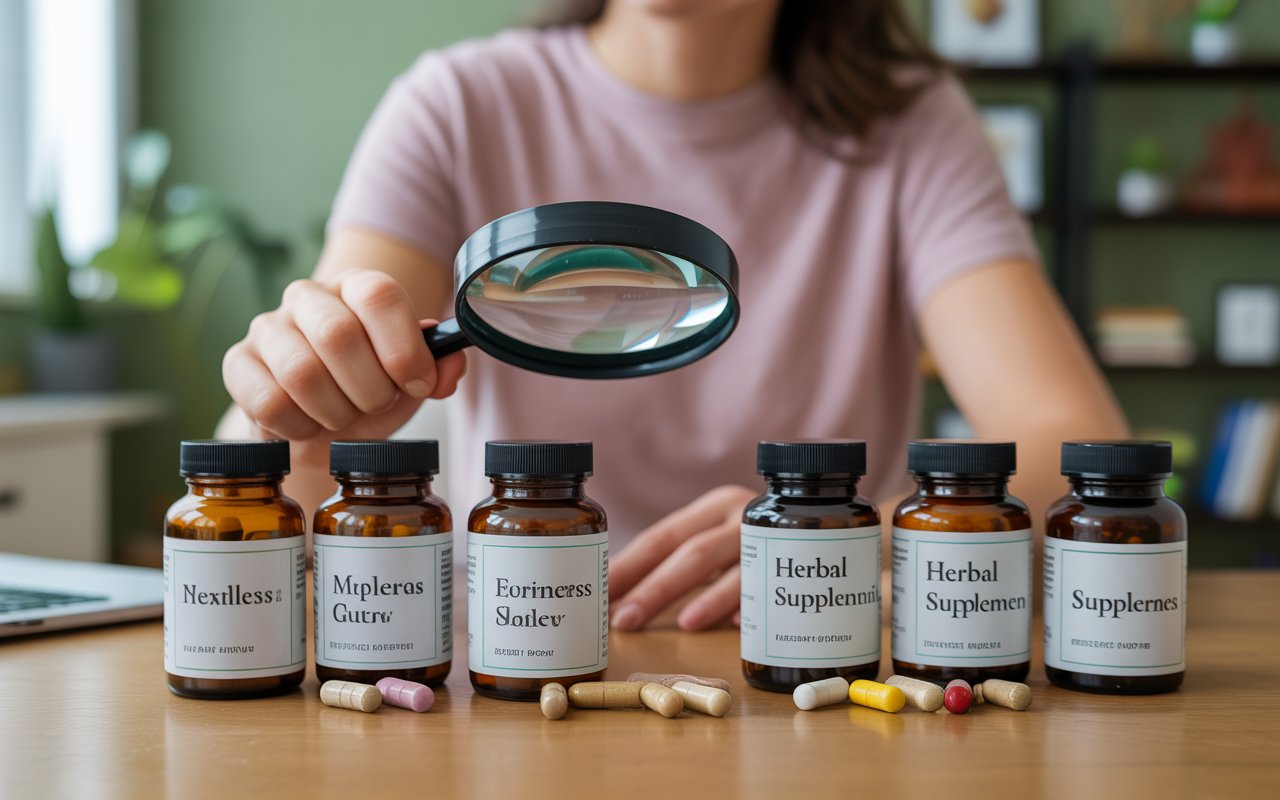In a world where online wellness trends rise and fall at lightning speed, herbciepscam has emerged as a curious phrase circulating across forums, social media threads, and niche health blogs. Many users wonder — is it a real herbal product, a misunderstood brand, or simply another digital scam making the rounds?
The story of herbciepscam reflects the ongoing struggle between innovation and misinformation in the modern wellness industry. As technology continues to shape how we discover, buy, and evaluate health products, it becomes increasingly important to separate genuine science from clever marketing.
The Age of Online Health Hype
The internet has democratized access to information — but it has also made misinformation easier to spread. A single misleading post can reach thousands within hours. New “miracle cures” or “natural detox” products appear every week, each promising impossible results.
This environment is where terms like herbciepscam find traction. The name itself suggests something herbal or organic, yet shrouded in doubt. Whether it’s a real brand or a concept created to warn consumers, the conversation around it raises a bigger question: how do we know what to trust online?
Why People Fall for Online Health Scams
People often turn to alternative remedies out of hope, not ignorance. When modern medicine feels slow, expensive, or impersonal, “natural” products can appear comforting and safe.
But the lack of regulation in the global supplement market makes it easy for misleading claims to slip through. Flashy websites, fake reviews, and influencer endorsements can turn even a questionable formula into a viral sensation overnight.
The psychology behind it is simple: people want to believe in quick, natural solutions. And that’s exactly what online scammers exploit.
The Warning Signs of Digital Deception
Let’s break down the red flags that often signal an unreliable product or campaign — lessons that apply beyond herbciepscam itself:
- Unrealistic Promises: Claims like “guaranteed weight loss in a week” or “reverses aging instantly” are hallmarks of false advertising.
• Lack of Transparency: No clear contact details, ingredients list, or scientific citations usually means something’s off.
• Pressure Tactics: Pop-ups saying “only 3 left!” or “offer expires in 5 minutes!” create artificial urgency.
• Fake Reviews and Endorsements: Many online comments or testimonials are generated by bots or paid marketers.
Understanding these signs helps users build a healthy skepticism — not paranoia, but awareness.
How Technology Amplifies Misinformation
The digital landscape has made product discovery effortless but also dangerous. Algorithms favor engagement, not accuracy. That means dramatic claims often go viral faster than verified information.
Platforms like TikTok and Instagram amplify short, emotional content — the perfect breeding ground for wellness myths. Even credible influencers can unintentionally spread false claims when they fail to fact-check their sources. This is why education and awareness are crucial. Consumers must learn not just what to believe but how to verify.
The Ethical Side of Digital Marketing
Marketers carry a moral responsibility, especially in the health and wellness industry. While creativity and branding are essential, honesty should always come first. Unfortunately, many marketing campaigns for herbal or “natural” products rely on vague language, pseudo-science, and selective data. This erodes trust in the entire wellness ecosystem. Real credibility is built on transparency, not tricks. Sharing scientific studies, showing real customer feedback, and maintaining open communication can distinguish genuine wellness brands from deceptive ones.
A Real-World Example: The Cost of Misinformation
Take the case of a viral “herbal cure” that spread across multiple countries in 2022. It was advertised as a miracle treatment for fatigue and digestion, backed by influencer reviews and emotional testimonials.
Within months, users reported side effects and financial losses after subscribing to “auto-renew” purchase plans that were nearly impossible to cancel. Investigations later revealed that the company behind the product had no medical licensing and operated under multiple fake brand names.
This isn’t an isolated case — it’s a recurring pattern. The situation mirrors the conversation around herbciepscam: how fast misinformation can spread and how crucial it is to investigate before investing.
How to Stay Safe in the Digital Health Market
Online consumers have more tools than ever to protect themselves — if they know how to use them effectively. Here’s how you can safeguard your health and your wallet:
- Verify the Source: Always check the domain age, company registration, and reviews on independent platforms.
2. Cross-Reference Claims: Search for scientific studies or medical publications backing the product.
3. Watch for Overly Polished Ads: Real companies focus on evidence; scams rely on hype.
4. Use Reputable Marketplaces: Buying directly from verified health retailers reduces risk.
5. Consult Professionals: A doctor or pharmacist can help you evaluate whether a product is safe or necessary.
These simple steps turn consumers from targets into informed decision-makers.
When Skepticism Becomes Empowerment
Skepticism doesn’t mean rejecting everything new. It means asking questions before accepting claims. Healthy skepticism can save you time, money, and possibly your health.
The rise of digital wellness has many benefits — increased access, awareness, and community support — but it also demands critical thinking. Consumers who combine curiosity with caution become immune to the emotional manipulation that fuels scams.
That’s the true message behind discussions of herbciepscam: awareness is power.
Technology and the Future of Trust
In the coming years, blockchain verification, AI-driven product analysis, and digital identity protection will play a huge role in restoring consumer confidence. Imagine scanning a product and instantly seeing verified lab tests and sourcing details.
This future of transparency is already unfolding, and it’s the best defense against online deception. As technology evolves, so must our ability to use it responsibly.
A Call for Digital Literacy
Schools and communities must start teaching digital literacy as part of basic education. Understanding algorithms, recognizing bias, and spotting fake news are as essential today as reading and writing once were.
By empowering future generations to think critically, we can reduce the number of victims falling for online scams — whether they’re about wellness, finance, or technology.
Conclusion: Beyond Herbciepscam
At its core, the story of herbciepscam is not about one product — it’s about awareness in a digital age where truth competes with marketing. It’s about protecting yourself without losing curiosity, staying informed without losing hope.
In a world filled with noise, clarity becomes your greatest defense. Always question, always verify, and remember — genuine wellness is built on knowledge, not promises.


